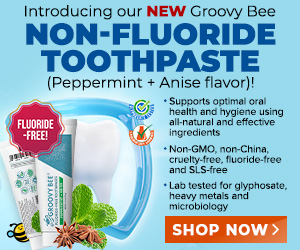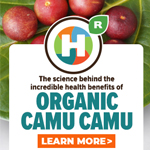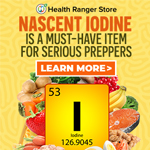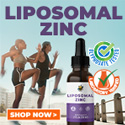
Resveratrol Found to Treat Fatty Liver Disease
Friday, May 15, 2009 by: David Gutierrez, staff writer
Tags: liver disease, health news, Natural News
- Oncologist warns of ‘terrifyingly aggressive’ cancers in children, linked to immune suppression from COVID vaccines
- NIH study, buried for decades, reveals that Flu Shots INCREASE elderly deaths, not prevent them
- COVID-19 scandal linked to CANCER SURGE: Billionaire researcher sounds alarm
- Musk targets “strangely wealthy” lawmakers in DOGE probe, names Pelosi, McConnell, Schumer
- Health Ranger Report: Ashton Forbes discusses TELEPORTATION ORBS and their role in MH370 disappearance
- Trump administration CUTS FUNDING to Gavi, the Vaccine Alliance - a major blow to the Bill Gates-backed entity
- Ancient kitchen secrets REVEALED: How garlic, ginger and green onions fight cancer and heart disease
- DARPA: The shadowy innovator behind the world’s most advanced military technologies
- Millionaire fitness coach charged in Tesla vandalism incident as anti-Musk attacks escalate
- “Ethically sourced” human “bodyoids” could usher in a new era of medical exploitation, raising disturbing ethical questions
- Newly released JFK files reveal Pentagon's role in creating Lyme disease and covid in the same lab
- European Court of Justice: Healthcare professionals who promoted or administered COVID-19 vaccines are CRIMINALLY LIABLE for any harm caused
- Britain’s descent into police state censorship: Parents raided for questioning their daughter’s school system online
- RFK Jr. is pushing Big Pharma ad ban - and corporate media is panicking
- EPA banned chemical linked to cancer, Parkinson's and fatal heart defects in babies - now industry is lobbying to get it reinstated
- Tackling the rubber waste crisis: Groundbreaking study reveals eco-friendly method to recycle tires
- Homesteading Boom: How families are escaping cities to grow their own food
- Joseph Farrell’s “The Cosmic War”: Did an interplanetary conflict reshape the solar system?
- Newly released JFK files reveal Pentagon's role in creating Lyme disease and covid in the same lab
- CDC finally halts $11 billion COVID funding scam as health officials admit the ‘pandemic’ was a fraud
- Analysis: The coming economic collapse, a mass uprising and Trump's three secret weapons to halt the growing revolt
- Kiss Your Genetic Privacy Good-Bye! 23andMe Gets Green Light to Sell Your Intimate Genetic Details to Anyone They Want
- Dr. Suzanne Humphries makes bombshell appearance on Joe Rogan podcast, exposing vaccine industry deception back to POLIOMYELITIS
- DEADLY DECEPTION: How COVID vaccines increased mortality rates and why authorities hid the truth
- Woman contracts WORLD'S DEADLIEST VIRUS after unknowingly being given the WRONG VACCINE
- Oncologist warns of ‘terrifyingly aggressive’ cancers in children, linked to immune suppression from COVID vaccines
- Here are TEN all-natural ways to protect your garden without using harmful chemicals
- Black cumin seed oil emerges as a powerful ally against breast cancer and chronic inflammation
- The hidden dangers in your kitchen: How cooking methods impact diabetes, cancer and aging
- Trump's greatest betrayal so far: Accelerating Middle East wars, silencing dissent, and serving Zionist masters
- Senate Democrats deny censorship industrial complex existed, defend government's role in silencing dissent
- Sugar-free deception: Artificial sweeteners hijack hunger signals, fuel obesity epidemic, study warns
- “Independent” anti-Russia outlet MEDUZA faces COLLAPSE as US funding dries up
- NIH study, buried for decades, reveals that Flu Shots INCREASE elderly deaths, not prevent them
- The Health Ranger releases “Vaccine Zombie” song and music video, using AI-animated zombies for the music video
- Discovery of vast underground city beneath Giza pyramids challenges human history
- Newly released JFK files reveal Pentagon's role in creating Lyme disease and covid in the same lab
- California's social media censorship law struck down: A victory for free speech or a threat to online safety?
- EPA advisor admits the agency is funneling billions to climate groups ahead of Trump’s return to White House
- The Health Ranger releases “Vaccine Zombie” song and music video, using AI-animated zombies for the music video
- Dr. Mike Yeadon releases 15-minute testimony - WATCH - about genocidal intent of COVID “vaccines”
- Florida takes a stand: DeSantis proposes permanent ban on mRNA vaccine mandates
- Mike Adams releases country western hit single: Goin’ Back in Time is Comin’ Home
- “Why we influenced the 2020 elections”: Facebook files reveal the coordinated effort to bury the Hunter Biden laptop story
- Unpacking the Lies That We’ve Been Fed – new song and music video released by Mike Adams, the Health Ranger
- House Intelligence Committee calls for the ARREST and PROSECUTION of Dr. Anthony Fauci
- The pandemic as a tool for INDOCTRINATION: Understanding “The Indoctrinated Brain” by Dr. Michael Nehls
- Rep. Nancy Mace introduces bill to ban biological males from female facilities on federal property
- Mike Adams releases music poetry sensation: A Child of God
- Sugarcane extract superior to cholesterol-lowering drugs?
- Survival 101: Effective EMF blocking techniques
- Michigan sheriff announces criminal investigation into 2020 election crimes, Dominion Voting Systems
- Peter Rost exposes Big Pharma corruption in his book “The Whistleblower: Confessions of a Healthcare Hitman”
- Migrants are taking advantage of recent hurricanes to scam residents and loot their homes
- Red Cross issues warning to stop blood plasma donations from vaccinated people
- Scientists confirm: GENIUS brain function can be spontaneously unleashed in humans without any apparent cause
- EPA advisor admits the agency is funneling billions to climate groups ahead of Trump’s return to White House
- HYSSOP: What research reveals about the health benefits of this ancient holy herb
- Two containers with completed ballots fall out of truck in Florida
- Fully vaccinated about to see “tsunami” of illness and death, warns virologist
- Global leaders unite to clamp down on “misinformation” with UN-backed Cascais Declaration
- BREAKING: 2025 NDAA authorizes mandatory military draft of WOMEN across America… as Pentagon pursues global NUCLEAR war with both Russia and China at the same time
- Michael Yon warns of a ZIONIST TAKEOVER in Trump’s second administration
- BOMBSHELL: DNA testing kits are a SCAM to develop ethnic-specific bioweapons
- Ozempic and Wegovy weight loss drugs are injectable LIZARD VENOM PEPTIDES that may unleash a devastating wave of organ failure… side effects align with symptoms of SNAKE BITES
- Israeli soldiers accused of even more torture and abuse in the West Bank
- These 13 countries just signed an agreement to engineer a global FAMINE by destroying food supply
- NASA admits that climate change occurs because of changes in Earth’s solar orbit, and NOT because of SUVs and fossil fuels
- RFK Jr. clears key hurdle: Sen. Susan Collins backs controversial HHS nominee, signaling a new era for health policy
- Sermon 30: How Jesus reveals Caesar’s FAKE CURRENCY and FALSE AUTHORITY
- Coriander seeds: Ancient medicine backed by modern science
- Arizona officials claim Maricopa County needs 10-13 days to tabulate results of the election
"Our study suggests that resveratrol may serve as a promising agent for preventing or treating human alcoholic fatty liver disease," the researchers from the University of South Florida Health Sciences Center in Tampa wrote in the American Journal of Physiology -- Gastrointestinal and Live Physiology.
Scientists have known for some time that part of the way that alcohol damages the liver is by inhibiting the action of two proteins, known as AMPK and SIRT1. These proteins play a critical role in helping break down fats to remove them from the liver; when their activity is disrupted, it leads to the fatty buildup associated with liver diseases such as cirrhosis and fibrosis. Left untreated, this fat buildup can eventually cause total liver failure.
In the current study, researchers looked directly at resveratrol's effects on AMPK and SIRT1. They fed mice a low-fat diet, supplemented with either resveratrol, alcohol or a combination of the two. They then observed that mice that had been given both resveratrol and alcohol had higher levels of SIRT1 and higher activity of AMPK than mice that were given alcohol alone.
The higher levels and activity of the two key proteins led to a decrease in other proteins, specifically those involved in the buildup of liver fat. They also led to an increase in levels of the hormone adiponectin, which metabolizes fat.
When the researchers looked at the mice's livers, they found that the livers of resveratrol-treated mice produced less fat than mice that were given alcohol alone, and that this fat was also broken down more quickly.
Previous research has linked resveratrol to a decreased risk of cancer and heart disease, as well as to longer life and reduced age-related decline. Recent research, published in the Nutrition Review, found that it successfully reduced cholesterol and insulin sensitivity, and protected the nervous system.
Resveratrol is widely believed to contribute to the health-protective effects of wine, which are partially responsible for the so-called "French paradox."
"Despite eating a diet equally high in saturated fat as the typical American diet, the French were shown to have about one-third the level of cardiovascular disease," said Debra Miller, director of nutrition at candy company Hershey. "Continued research indicates that moderate consumption of red wine, along with fruits, vegetables, nuts and lower amounts of red meat, may contribute to this lower risk of heart of disease."
The FDA has approved statements that drinking a glass or two of red wine per day can lower cholesterol and reduce the risk of cardiovascular disease and cancer.
Resveratrol is found in high quantities in grape skins, peanuts and products made with them, such as red wine and peanut butter. A new study conducted by Hershey in partnership with Planta Analytica has also detected high levels in cocoa products for the first time.
"This study shows that the levels of resveratrol found in cocoa and chocolate products is second to red wine among known sources of resveratrol and forms yet another important link between the antioxidants found in cocoa and dark chocolate to other foods," said David Stuart, Hershey director of natural product science.
Among the cocoa products tested, the highest resveratrol levels were found in cocoa powder, followed by baking chocolate, dark chocolate, semisweet chocolate chips, milk chocolate and chocolate syrup. The top three chocolate products all contained significantly more resveratrol per serving than peanuts or peanut butter, but less resveratrol per serving than California red wine.
The Hershey study was published in the Journal of Agricultural and Food Chemistry.
Sources for this story include: www.reuters.com; mangalorean.com.
Liver disease at FETCH.news
Get independent news alerts on natural cures, food lab tests, cannabis medicine, science, robotics, drones, privacy and more.
Take Action: Support Natural News by linking to this article from your website
Permalink to this article:
Embed article link: (copy HTML code below):
Reprinting this article:
Non-commercial use OK, cite NaturalNews.com with clickable link.
Follow Natural News on Facebook, Twitter, Google Plus, and Pinterest
Science News & Studies
Medicine News and Information
Food News & Studies
Health News & Studies
Herbs News & Information
Pollution News & Studies
Cancer News & Studies
Climate News & Studies
Survival News & Information
Gear News & Information
News covering technology, stocks, hackers, and more



"Big Tech and mainstream media are constantly trying to silence the independent voices that dare to bring you the truth about toxic food ingredients, dangerous medications and the failed, fraudulent science of the profit-driven medical establishment.
Email is one of the best ways to make sure you stay informed, without the censorship of the tech giants (Google, Apple, Facebook, Twitter, YouTube, etc.). Stay informed and you'll even likely learn information that may help save your own life."
–The Health Ranger, Mike Adams













































